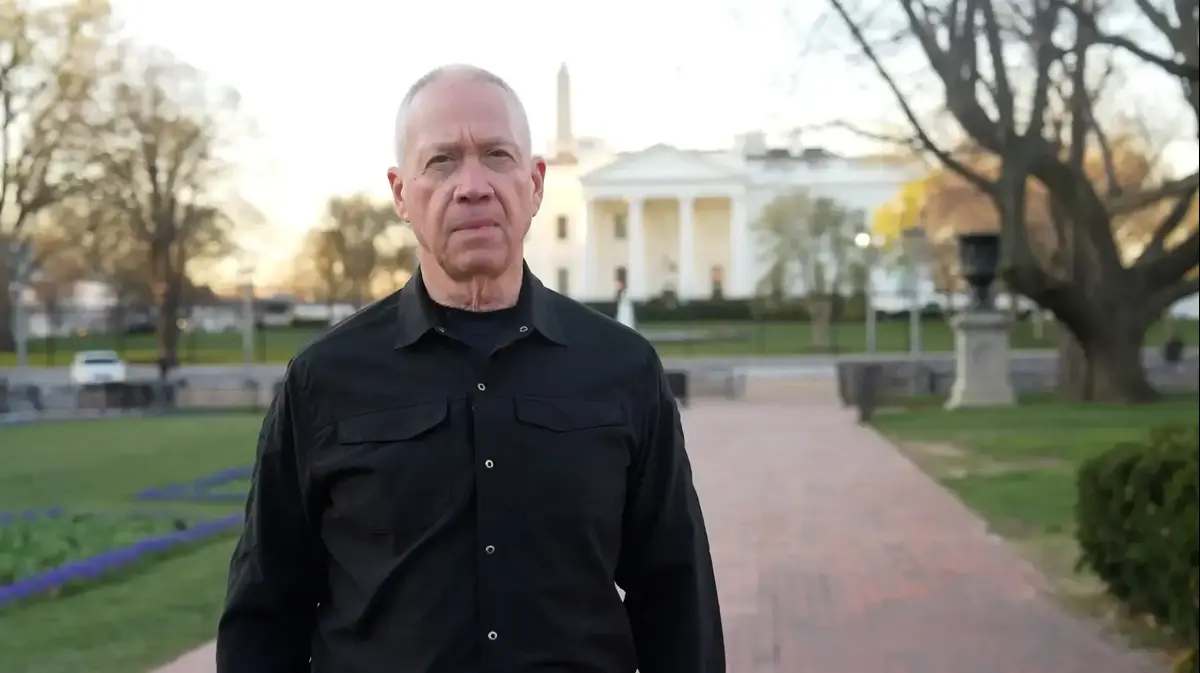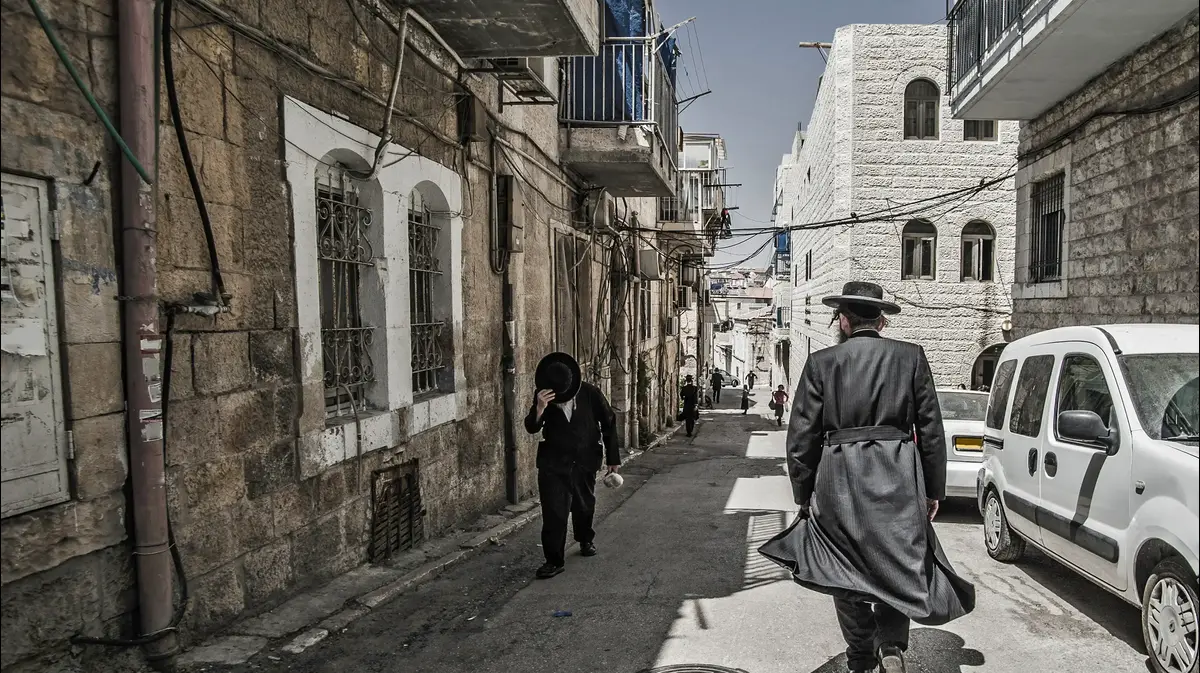The findings of the Israeli Democracy Index reveal that over the years there has been a distinct strengthening of the connection between the political self-position (right, center, left) of the Jewish interviewees and all of their positions on the questions that the Democracy Index deals with, with the gaps between the camps being clear and systematic.
This is also the case with the Arab public, segmented according to those who voted for non-Zionist (Arab) parties or for Zionist parties.
Unlike in the past, the distinction between right and left (Jews) is moving away from the issue of the Israeli-Palestinian conflict and today includes almost all domestic and foreign political-social fields.
Another characteristic that has strengthened over the years is the overlap between political self-positioning and self-positioning on the ultra-Orthodox-secular continuum: among the secular public there is an almost equal division between those who place themselves on the left, in the center, and on the right, but in the other groups, and especially among the national religious and ultra-Orthodox, there is a clear majority for those who place themselves on the right.
The distinction between right and left is moving away from the issue of the Israeli-Palestinian conflict.
A security wall near the settlement of Mitar, photo: Dodo Greenspan
Between the 2012 measurement and the 2022 measurement, there is a sharp drop in the rate of optimists regarding Israel's future (in the entire sample from 76% to 49%).
The trend is similar among Jews and Arabs, although the Jews maintain an optimistic majority, while the Arabs are now a minority (Jews 2012 – 79%, 2022 – 51%; Arabs 2012 – 60%, 2022 – 37%).
Regarding Israel's general situation, from 2003 to 2018 there was a constant increase in the proportion of those who assess Israel's situation as good and very good (from 11% to 53%).
On the other hand, from the peak in 2018 until June 2022, there was a continuous decrease in this rate (from 53% to 25%).
In the last measurement (October 2022) an increase was found in the proportion of those who define Israel's situation as good or very good and a decrease in the proportion who define its situation as "very bad and quite bad".
There are no noticeable differences in this question between Jews and Arabs.
Among the Jews, the rate of being proud of being Israeli is stable (long-term average 2003-2022 - 85.9%).
Among the Arabs, this rate is less stable and much lower (long-term average 2003-2022 - 46%).
A continuous decrease in the proportion of those who define Israel's economic situation as good-very good, photo: Oren Ben Hakon
Want to stay in Israel - a large and stable majority of Jews and Arabs, with only small differences between the subgroups, want to stay in Israel.
This is the case not only among the adults but also among the young (18-24): less than a quarter want to live somewhere else (23% of the Jews and 22% of the Arabs).
Government Institutions: Trust in Institutions from 2003 The Democracy Index tests the public's trust in 8 institutions (the IDF, the police, the President of the State, the Supreme Court, the government, the Knesset, the political parties and the media). In the 2022 measurement (average of June and October) a decrease was found In the public's trust in all institutions compared to the multi-year average of each of them. However, in the October 2022 measurement there is an increase in trust in two institutions compared to last year - the IDF (Jews - from 78% to 85%) and the President of the State (the entire sample from 55 % to 62%).
For four institutions the October 2022 measurement is the lowest ever: the Supreme Court (42%), the media (23%), the Knesset (18%) and the political parties (9%).
Trust in the IDF at the head, General Headquarters building in Karia, photo: Kafir Ziv
In the entire sample, from a peak in trust in all state institutions in 2012 (average 61%) there was a drop to an unprecedented low (33%) in the 2022 measurement. The average trust in all institutions for the years 2003-2022 was 49.7% in the Jewish public and 36.3% in the Arab public.
From 2014 to 2022, there was a large increase in the proportion of those who agree that "in order to address the special problems of the State of Israel, a strong leader is needed who will not take into account the Knesset, the media and public opinion" (from 41% to 61%).
On this subject there is a great similarity between the Jews and the Arabs.
Segmentation according to political camp (Jews) shows that 38% of the left currently support this, 54% of the center and 68% of the right.
Abolition of laws by the Supreme Court - in the total sample in 5 measurements over more than a decade, an average majority of 55.6% supports that the Supreme Court will have the authority to annul laws enacted by the Knesset if they are found to be against the principles of democracy.
Among the Arabs, the support for this is much higher than among the Jews (87% compared to 51%).
Segmentation according to political camps (Jews) showed a majority of supporters on the left and center (89% and 70%) compared to a minority on the right (37.5%).
A fixed majority in the public against the increase clause, High Court of Justice, photo: Reuters
Jewish-Arab relations: Similar to the two previous measurements (2018 and 2020), also in the 2022 measurement a large majority of the Jewish public (69%) think that the regime in Israel is democratic even for the Arab citizens.
But the differences between the political camps are large: on the right (74%) and center (69%) support this statement, compared to less than half on the left (47%).
However, as in the two previous surveys, in the 2022 survey, only a minority (31%) of the Arabs think that the regime in Israel is democratic for them as well.
The difference in this matter between the voters of the Arab non-Zionist parties and the voters of the Zionist parties is large (respectively 19% and 62%).
Relations between Arabs and Jews in Israel - since 2018 there has been a large increase in the proportion of Jews who define the nature of relations between Jews and Arabs in Israel as bad or very bad (from 27% to 60%).
Only 4% of Jews today define these relations as good or very good.
A similar trend, but more moderate, was also found among the Arabs.
Here, the proportion of those defining the relationship as bad or very bad rose from 26% in 2018 to 45% today.
Only 17% of Arabs today define these relations as good.
There is a sharp increase in the Jewish public in the proportion who believe that Jewish citizens in Israel should have more rights than non-Jewish citizens (2022 - 49%; multi-year average - 36.6%).
Among the Arabs there is a large and permanent majority who appreciate that the Arab citizens are interested in integrating into Israeli society, Kfar Qasim, photo: no
The desire of the Arab citizens of Israel to integrate into Israeli society - in the Jewish public there has been a sharp decrease in the proportion of those who believe that Arab citizens want to integrate into Israeli society (2018 - 67%; 2022 - 40%).
Among the Arabs, there is a large and constant majority who assess that the Arab citizens are interested in integration (2022 - 75%, multi-year average - 76.6%).
The strongest tension in Israeli society - Over the years there have been significant changes in the assessment of what is the strongest tension in society.
Until 2016 (the entire sample) the highest rate indicated the tension between Jews and Arabs.
In the years 2018-2020, the tension between the right and the left took its place at the top of the scale.
But since the summer of 2021, the tension between Jews and Arabs has returned to the top of the tension scale.
The balance between the Jewish and democratic elements - between 2019 and 2022 there is a noticeable decrease in the proportion of those who believe that there is currently a balance in the State of Israel between the Jewish and democratic elements (from 28% to 18%).
This is alongside an increase in the proportion of those who state that the democratic component is too strong (from 18% to 25%).
A large majority of the ultra-Orthodox (85%) would like the Jewish component to be stronger, Yeshiva Ponovich, photo: Nati Shohat
The segmentation of the 2022 data by location on the ultra-secular continuum (Jews) shows that a large majority of the ultra-Orthodox (85%) would like the Jewish component to be stronger, as well as 77% of the national religious and 58.5% of the religious traditionalists.
Among the secularists, 51% prefer the democratic component.
Among the secularists, the majority (long-term average 66%) think that one should always act according to the principles of democracy;
Among the traditionalists, the most common answer is "depending on the case" (42%);
And among the religious nationalists and the ultra-orthodox, the majority think that one should always act according to the dictates of Jewish law (57% and 89%).
President Yitzhak Herzog: "From the moment I was elected president, I placed the disputes and divisions in Israeli society as one of the most urgent issues for me.
Therefore, I am very concerned about the three figures found in the report that is being presented to me today: the weakening of solidarity in Israel, the undermining of the sense of belonging to the country, and the decrease in the degree of optimism regarding our situation.
These are hard data that join other parts of the report, which reflect the internal tensions within us. In other words - our cohesion is weakening, and we must do everything to rebuild it. I believe that the right path begins with responsibility. The responsibility of every citizen, and more importantly - our responsibility - The elected officials. I intend to continue to act and devote my best efforts to this issue. Solidarity and belonging are critical to our resilience, and we must work to establish and strengthen them - day by day, hour by hour."
"Very concerned about some of the data in the report, Herzog, photo: Oren Ben Hakon
Yochanan Plesner, president of the Israel Democracy Institute: "The democracy index clearly shows: there is no majority in the public for changes aimed at weakening the Supreme Court and crushing the justice system.
The set of initiatives promoted by the Minister of Justice will, cumulatively, lead to the crushing of the principle of separation of powers, to the control of the executive authority over the judicial authority and to the elimination of the ability of the Supreme Court to protect the individual from the arbitrariness of the government.
Israeli citizens and public leaders from all sectors are obligated to do everything in their power to curb these dangerous unilateral initiatives.
Along with vigorous and determined activity to stop the initiatives, it is time to go for a move that will be based on a broad group of public representatives and experts in which they will discuss and formulate the constitutional chapters that will restore stability, reduce polarization and serve as the basis of the Israeli regime."
Prof. Tamar Herman, Director of the Institute's Viterbi Center for Public Opinion and Policy Research: "The 2022 Index indicates the worsening of the fragmentation of public attitudes according to affiliation to political camps, to the point that it is not clear that there remains a common Israeli base on questions of principle as well as practical questions regarding the nature and manner of conduct of the State of Israel Also, looking back 20 years, it seems that on many issues there has been an erosion of the public's attitudes regarding the basic principles of democracy, in the Jewish public mainly regarding the civil equality between Jews and Arabs. Also, there has been a clear decline in the desire for the State of Israel to present a balance between the democratic aspect and the Jewish aspect, when Except in the secular public, in the Jewish majority group the growing preference is for the Jewish aspect.'
The Israeli Democracy Index was compiled by the Viterbi Center for Public Opinion and Policy Research at the Israel Democracy Institute.
In the 2022 survey, which was conducted online and by telephone between May 22 and June 21, 1,092 men and women were interviewed in the Hebrew language and 219 in the Arabic language, and they constitute a nationally representative sample of the adult population in Israel aged 18 and over.
The maximum sampling error for the whole sample is 2.76% ± at a confidence level of 95% (± 3.02% for the Jewish sample and ± 6.75% for the Arab sample).
The data collection was carried out in Hebrew by the "Marketing Information" institute and in Arabic by the "Afker" research institute.
Some of the questions were asked again at the end of October 2022 by the research institute "Mazal".
In general, the 2003 democracy indices interviewed 23,356 Israelis (19,614 Jews and 3,742 Arabs).
were we wrong
We will fix it!
If you found an error in the article, we would appreciate it if you shared it with us






/cloudfront-eu-central-1.images.arcpublishing.com/prisa/NZ3KWMFSD5GELFE3GLHUROE4FE.jpg)


